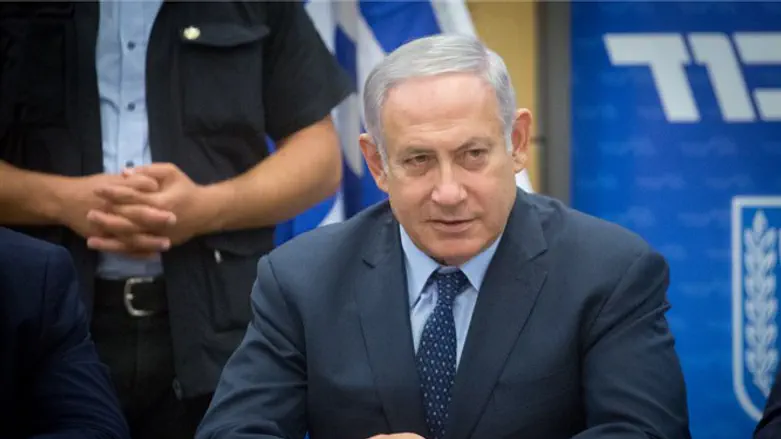
Israel may for the first time ever reduce the electoral threshold for entry into the Knesset, Prime Minister Binyamin Netanyahu said at a coalition meeting on Sunday, potentially making it easier for smaller factions to enter the Israeli legislature.
For most of Israel’s history, the minimum threshold for entering the Knesset was 1% of all valid votes. Prior to the 1992 elections, however, the Knesset raised the minimum electoral threshold to 1.5%.
Over the next 22 years, the threshold was raised incrementally, in the hopes of reducing the number of factions in the Knesset, creating more stable governing coalitions less dependent on small parties.
The threshold was raised to 2% for the 2003 election, then to 3.25% ahead of the 2015 elections. In Israel’s 120-member Knesset, the current threshold is equivalent to 3.9 seats.
On Sunday, however, Prime Minister Netanyahu proposed rolling back the minimum threshold to 2.75%, telling coalition partners he would push for the change – but only if it receives support from all six factions in the government.
“I’m putting on the table the option of reducing the electoral threshold by half a percent,” Netanyahu said. “But it would have to be by unanimous agreement. Without that kind of consensus, we won’t push the matter.”
The Knesset must be dissolved and new elections held by November of next year.
However, sources close to the Prime Minister claimed last month that Netanyahu is planning to hold early elections in February or March of 2019.
While recent polls show the Likud with a comfortable lead over its nearest competitor, Yesh Atid, coalition leaders have expressed concern that even if Netanyahu wins the next election, he may be limited in his choice of coalition partners, if smaller factions currently in the government fail to pass the 3.25% threshold.
Both the haredi Shas party and Defense Minister Avigdor Liberman’s Yisrael Beytenu party have polled in the mid-single digits – close enough to the electoral threshold to cause concern among senior coalition officials.
Yisrael Beytenu, which won 6 seats in 2015 but was reduced to just 5 after MK Orly Levy split off, has polled between 5-6 seats over the past few months.
Shas, which fell from 11 seats to just 7 mandates in the last election, has regularly polled just over the 3.25% minimum threshold, and has in some surveys failed to clear the minimum.
In 2015, the haredi Yahad party led by ex-interior minister Eli Yishai – which ran on a joint list with the right-wing Otzmah Yehudit faction – narrowly failed to reach the minimum threshold, receiving 2.97% of the vote